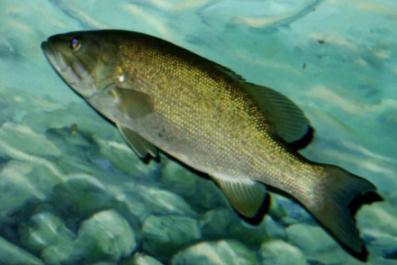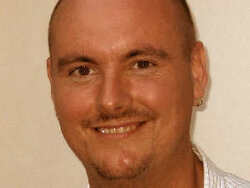 Regular columnist James Knight takes a critical and forthright view of assessing whether God exists based on observation of the natural world –an approach he describes as misjudged as a fish swimming around the Atlantic Ocean looking for that thing called ‘water’.
Regular columnist James Knight takes a critical and forthright view of assessing whether God exists based on observation of the natural world –an approach he describes as misjudged as a fish swimming around the Atlantic Ocean looking for that thing called ‘water’.
When it comes to issues poured into the ‘God of the gaps’ melting pot - faith, reason, evidence, science – why is it that so many people get it wrong?
As any inveterate viewers of the BBC's Sunday morning show The Big Questions will know, it is easy to become perpetually frustrated by the poor intellectual calibre of the contributors to the debate. But this problem extends much further. Those contributors are only doing on a small scale what those who influence them are doing on a much wider scale. Too many people just seem so unable to grasp a few simple notions related to knowledge, faith and gaps.
How foolish to say that science is now providing us with, or pointing us towards, knowledge that we once thought was supernatural, as if that is a point against the supernatural. It isn’t – it is only a point against the error of not paying enough attention to the fact that scientific progress will inevitably bring fresh knowledge and understanding. It is obvious that a person who tries to introduce God or the supernatural into an investigation that can (and probably will) be explained in the future by science is acting foolishly and irresponsibly. The trouble is, most theists do realise this, so the many atheists’ continual allusion to this fault only shows them to be very incapable of seeing the wider landscape.
Here’s how the landscape should be viewed, irrespective of whether you’re a theist, agnostic or an atheist. The natural world provides no means by which one can justifiably claim with any authority that God or the supernatural exists. Every time someone points to a good or positive part of reality and says that’s good reason to believe in God, one can switch it around and point to a cruel or negative part of reality and say that’s good reason to not believe. Things won’t improve until people start to realise that nuanced empirical investigation gives no general indicator of God or the supernatural, much less a fait accompli justification for belief or unbelief. That is why it comes down to personal faith – and why the poets like Blake, Eliot, Tennyson, Donne, Herbert and Rossetti express sentiments that are beautifully suggestive rather than empirically compelling.
But what is faith? First I’ll tell you what it isn’t – it isn’t the silly caricature many atheists make it out to be when they say it is opposed to reason or evidence – that’s just buffoonery. Faith is the position whereby one looks at the whole of nature and trusts that God is the Creator. If you want to see the real gravitas of faith, it is utterly erroneous to look at nature and ask if there is any evidence for God from within that natural perspective, because all you’re doing is assessing the situation by treating God as though He shows Himself only through radical breaks in normalcy.
That is to say, God is either the creator of nature or else there is no God – He is not to be accepted or rejected on principles of natural law and cosmic interruptions to that process. If you find faith through rational means, you find it by trusting that God is the cosmic architect and storyteller. You either believe the whole thing is part of His grand masterplan, or you can reject it, or perhaps continue to ponder it some more. What you mustn’t do is seek to accept or reject Divinity based on the nuanced observations made within nature, which seek only to distinguish between the natural and the supernatural.
As far as we are concerned, natural and supernatural are humanly constructed terms. To look for the supernatural as a distinguishable phenomenon in nature is about as misjudged as a fish swimming around all its life in the Atlantic Ocean looking for that thing called ‘water’.
When you hear people talking about the knowledge they have, you should realise that they are commenting on lots of links in a chain of observed instances of cause and effect. One may easily justify believing A because of B, and B because of C, and so on, but at some point we reach a terminus where justification for that chain of beliefs halts and no further connectivity is retained. The most logical thing to conclude is that the terminus is reached with the origins of the universe. With our current understanding, the big bang is an obvious epistemological place at which one can plant one’s flag of ignorance in the ground. Our epistemological trail stops dead at physics, leaving us only mathematics and our ability to imagine what, if anything, lies beyond physics (and maybe even beyond mathematics too). Either you can find faith or not, but don’t get drawn into the world of crass distortions – it will only make you look incompetent.
To intelligent theists and atheists there should be no ‘gaps’ at all – because faith isn’t like looking for water in the Atlantic Ocean, it is about trusting that the whole story is part of a grand narrative. For me, there are no gaps – because I never tried to erroneously fill them with supernatural explanations in the first place – I was always happy to let science take care of the physical parts of reality, and at the same time have faith that that physical reality is part of a grander cosmic narrative over which God has ultimate control.
 James Knight is a long term contributor to the Network Norwich & Norfolk website and a local government officer based in Norwich.
James Knight is a long term contributor to the Network Norwich & Norfolk website and a local government officer based in Norwich.
The views carried here are those of the author, not of Network Norwich and Norfolk, and are intended to stimulate constructive debate between website users.
We welcome your thoughts and comments, posted below, upon the ideas expressed here.